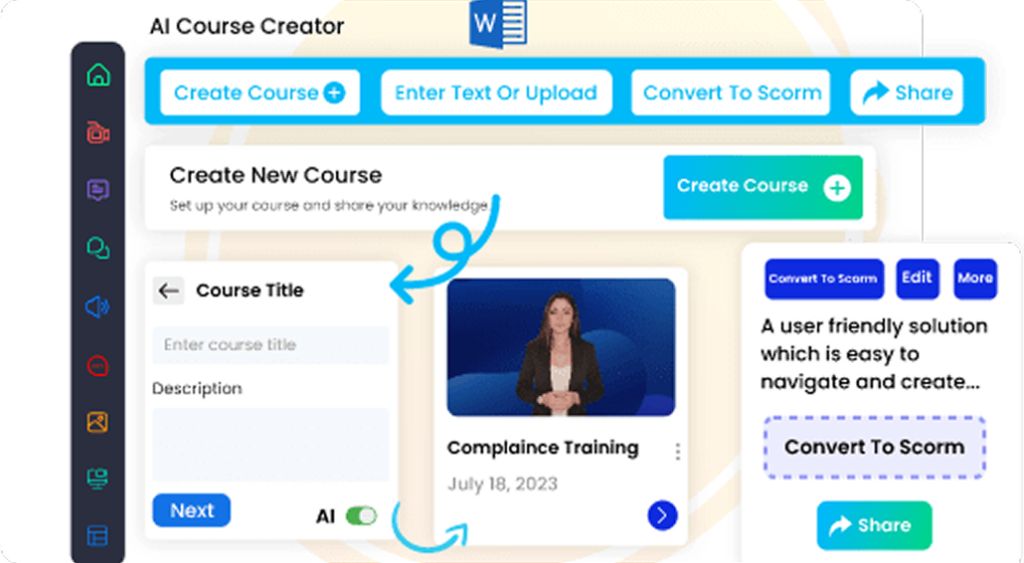Essential Principles of Effective Negotiation Training for Sales Teams
Negotiation is a vital skill that directly impacts sales success. When sales teams master core negotiation principles, they become more confident, closing deals more effectively and building stronger client relationships. A well-designed negotiation skills training for sales teams equips professionals with the techniques to engage with clients confidently, manage objections skillfully, and reach mutually beneficial agreements that drive growth. In this article, we’ll explore the fundamental principles of effective negotiation training, offering practical tips to elevate your sales team’s negotiation capabilities and achieve sustainable success.
Understanding the Fundamentals of Negotiation
The Importance of Negotiation Skills in Sales
Negotiation involves more than haggling over price; it encompasses a complex communication process aimed at reaching agreements satisfying both parties. According to research from the Harvard Business Review, skilled negotiators can increase the value of their deals by up to 20%. For sales teams, strong negotiation skills foster better client relationships, improve profit margins, and increase success rates. Developing solid negotiation fundamentals is therefore essential for any sales professional seeking to excel in competitive markets.
Basic Principles that Underpin Successful Negotiations
Sales Negotiation Skills Mastery Training emphasizes the importance of trust, thorough preparation, and clear communication as the foundation of effective negotiations. These core principles enable sales teams to approach negotiations systematically and confidently, helping them avoid common pitfalls such as miscommunication or confrontational tactics. By focusing on these essentials, the training ensures that negotiations stay constructive and centered on creating mutual value.
Explore Our eLearning Course Catalog
Access 100+ fully editable, SCORM-compatible courses featuring an integrated AI Tutor and an in-built authoring tool. Seamlessly compatible with any LMS, these courses are designed to elevate your training programs.
Explore Course CatalogCore Principles of Effective Negotiation Training
1. Preparation Is Key
Know Your Goals and Limits
Preparation starts with defining clear objectives. Sales teams should establish their ideal outcomes, minimum acceptable agreements, and walk-away points before negotiations begin. This clarity prevents impulsive decisions and keeps discussions focused. Knowing one’s boundaries allows negotiators to operate with confidence and avoid making concessions too readily.
Research Your Client
Collect insights into your client’s needs, pain points, industry specifics, and decision-making processes. According to HubSpot Research, well-informed salespeople are 50% more likely to close deals successfully. Tailoring your proposals based on client background demonstrates professionalism and boosts your confidence in addressing their unique concerns.
2. Build Rapport and Trust
Establish Effective Communication
Creating rapport helps set a positive negotiation environment. Active listening, maintaining eye contact, and demonstrating genuine interest foster trust and open dialogue. When clients feel understood, they are more receptive to your proposals and more willing to collaborate.
Empathy and Emotional Intelligence
Understanding the client’s emotions and perspective is crucial for successful negotiation. Training sales teams in emotional intelligence enables them to interpret cues and respond appropriately, strengthening relationships and fostering cooperation. Empathy also helps in managing objections more tactfully and confidently.
3. Focus on Value Creation
Adopt a Win-Win Mindset
Shift from a fixed pie mentality to a collaborative approach emphasizing mutual value. Emphasize solutions that meet both parties’ needs rather than just closing a deal at any cost. This approach fosters trust and long-term loyalty. Identifying unique value propositions tailored to the client’s priorities makes negotiations more productive.
Present Data-Driven Solutions
Use case studies, ROI analyses, and data to support your proposals. Providing factual evidence reassures clients and boosts your credibility. Data-driven presentations enable you to justify your offers convincingly and build confidence in your negotiations.
4. Effective Communication and Active Listening
Clarify and Confirm
Socratic questioning, paraphrasing, and summarizing help ensure mutual understanding. Open-ended questions reveal deeper needs, and confirming statements prevent misunderstandings. This clarity builds confidence and shows your commitment to understanding client concerns.
Handle Objections Constructively
View objections as opportunities for clarification rather than barriers. Prepare responses to common concerns calmly and confidently, demonstrating expertise and resilience. Handling objections well establishes your authority and increases trust.
5. Flexibility and Adaptability
Be Open to Alternatives
Staying flexible allows you to explore creative solutions that meet client needs while protecting your interests. Offering alternatives and concessions tactfully can help close deals more effectively.
Adjust Strategies in Real-Time
Monitoring the negotiation flow and adapting your tactics ensures better outcomes. Scenario-based training and role-playing improve your team’s ability to pivot fluidly during discussions, increasing their confidence in dynamic situations.
6. Use Strategic Silence and Timing
The Power of Silence
Pausing strategically can prompt clients to reveal additional information or reconsider their position. Silence communicates confidence, while poorly timed concessions might weaken your leverage.
Timing Your Offers
Knowing when to make concessions or stand firm is critical. Good timing maintains your negotiation leverage and guides negotiations toward positive outcomes. Practice and scenario training help your team master this skill.
7. Document and Follow Up
Record Agreements Clearly
Ensure all discussed points are documented accurately. Clear documentation prevents misunderstandings and future disputes, boosting confidence that agreements will be upheld.
Maintain Post-Negotiation Contact
Follow-up conversations reinforce relationships, clarify next steps, and demonstrate commitment. Consistent communication helps nurture trust and lays the groundwork for future negotiations.
Practical Tips for Incorporating Negotiation Principles into Training
- Use real-world simulations and role-playing exercises to practice negotiation scenarios, which build confidence and skills.
- Offer ongoing training, workshops, and coaching to reinforce core principles and adapt to evolving challenges.
- Leverage data and analytics tools to track negotiation outcomes; identify areas for improvement and customize training accordingly.
- Foster a negotiation culture that encourages collaboration, continuous learning, and sharing of best practices.
Take the next step by enrolling your sales team in our Course Catalog, where you’ll find negotiation training programs built around real-world practice and measurable outcomes.
Enhancing Negotiation Confidence Through Practice
Confidence arises from experience and thorough preparation. Encourage your sales team to review past negotiations, set realistic goals, and hone active listening skills. Developing a consistent practice routine helps build the self-assurance needed for successful negotiation outcomes.
Leveraging Technology for Better Negotiation Outcomes
Utilize AI-powered tools like Cognispark to streamline preparation, gain insights, and receive personalized training modules. Predictive analytics and data-driven decision support empower your team with real-time guidance, boosting confidence and effectiveness during negotiations.
Conclusion
Mastering the core principles of effective negotiation training transforms sales teams into confident, strategic negotiators. Emphasizing preparation, trust-building, value creation, communication, flexibility, and timing lays a strong foundation for success. Incorporate practical exercises, ongoing development, and technology to continually sharpen skills. Embedding these principles into your sales culture enables your team to close more deals, deepen client relationships, and achieve sustainable growth. Evaluate your current approach today and implement these foundational elements for immediate improvement.
Smart & Editable Course Catalog
Stop struggling with rigid course listings. Paradiso’s Course Catalog is fully customizable, works with any LMS, and gives you the power to update and manage courses with ease.






















